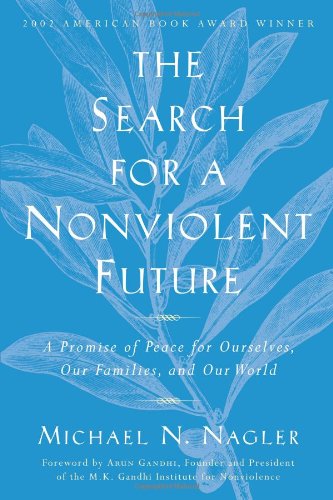“The clearest possible definition of the goal and its appreciation would fail to take us there if we do not know and utilize the means of achieving it.” ~ Gandhi, “Amrita Bazar Patrika,” September 17, 1933
From a strategist’s perspective, Gandhi emphasizes that “how” we achieve our goals needs to be as clear as “what” our goal is. I’m thinking about a famous conversation that Gandhi is said to have had with General Smuts, when he told him, “I’m going to win our cause,” and when the surprised General somewhat patronizingly asked him how he intended to do that, Gandhi replied, “with your help.” Compare that against an often heard protest slogan, “What do we want? Freedom. When do we want it? Now!”
The when, as in, when we want something to happen, is not the how we are going to make it happen. That said, a good strategist might not come up with her or his entire plan all at once, but she or he does know at least what to do next in the context of the larger picture. What’s the moral here? Don’t get carried away by visions of an ideal if there’s no real plan to back it up. Or at least, help articulate the plan if it hasn’t been done yet.
Thanks for sharing a comment below.
About Daily Metta
 Stephanie Van Hook, the Metta Center’s executive director, launched Daily Metta in 2015 as a way to share Gandhi’s spiritual wisdom and experiments with nonviolence.
Stephanie Van Hook, the Metta Center’s executive director, launched Daily Metta in 2015 as a way to share Gandhi’s spiritual wisdom and experiments with nonviolence.
Our 2016 Daily Metta continues with Gandhi on weekdays. On weekends, we share videos that complement Michael Nagler’s award-winning book, The Search for a Nonviolent Future: A Promise of Peace for Ourselves, Our Families, and Our World. To help readers engage with the book more deeply, the Metta Center offers a free PDF study guide.
Enjoy more Daily Metta: See the archives
Get Daily Metta by email: Subscribe









I don’t think I agree with this interpretation. It is clearly possible to recognize that there is a problem without being able to formulate a solution. Indeed, the role of the cultural/political/philosophical/social/artistic critic cannot be overstated in the restructuring of society. Yet it is not up to those critics to pose a practical solution.
I worry that today cultural critics are met with a sea of contempt from those young voices of privilege who unknowingly repeat the message of the status quo. These are the non-idealist students today who might recognize inequality, and who are (ahem) “profoundly changed” by their twenty hours of service in a soup kitchen. Yet though we can lead these young people to social critique, they still are reluctant to trust the waters.
For young student members of the elite class, social activism is not “worthwhile”; for young undergraduates awakened to the ideals of a liberal arts education… it is just “ineffective”. Maybe we need to spend more time teaching the roots and branches of political society. Much more philosophy, and much less sociology!